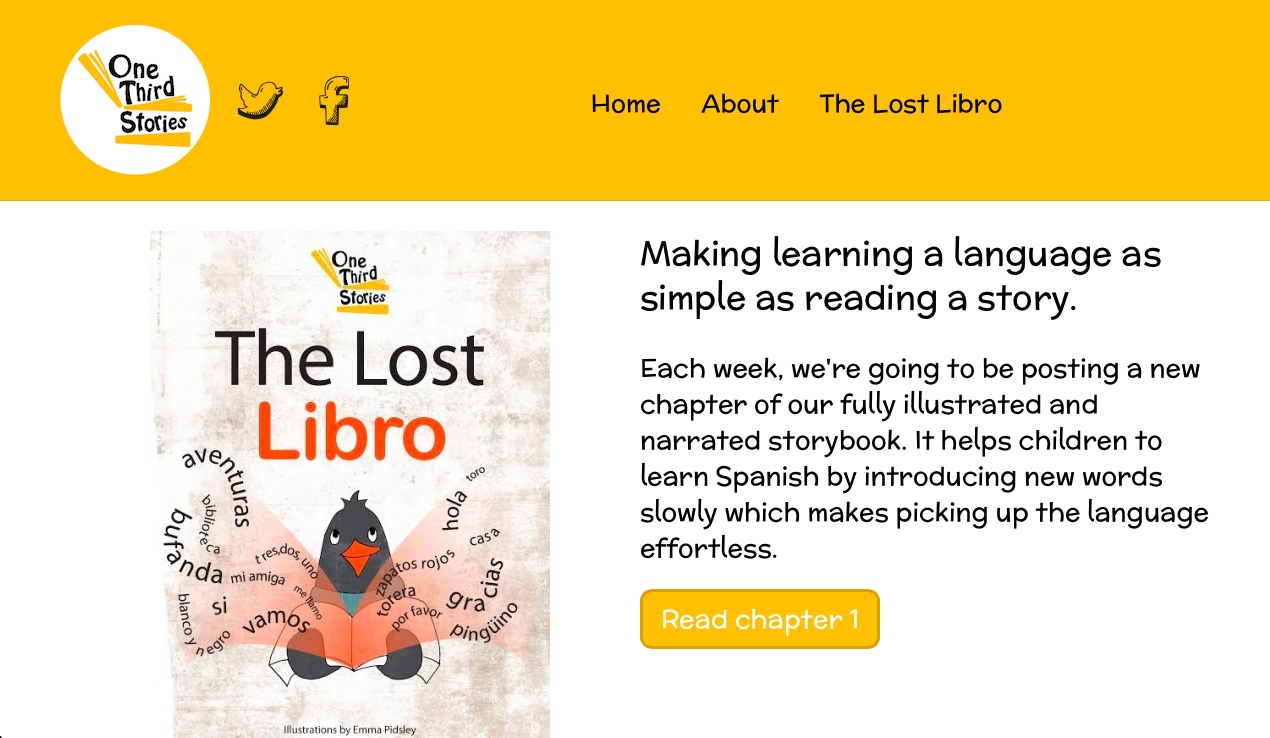“Why aren’t __________ (Brits/Americans/other English-language-speakers) better at learning languages?” is a question that pops up in the media every few years. “Why is multilingualism so prevalent in some parts of the world, and so lacking in ours?” The Scandinavians seem effortlessly multilingual. The Dutch rank second in the world for English language proficiency. Heck, even Kobe Bryant speaks fluent Italian.
But the English-speaking world is blessed and cursed with the globe’s lingua franca. English is the language of business, academia, science (sorry, Latin), and the Internet (sorry, cat gifs). Native English-speaking students don’t have the impetus to learn a second language for career purposes. Likewise, native English-speaking children don’t have the same impetus to learn a second language for the purpose of, say, watching Marvel movies or following Taylor Swift on Twitter.
Thus, native English speakers need to seek out a less obvious motive for learning a second language. Moreover, the parents and teachers of native English speakers need to find ways to motivate and encourage second language learning in children, beyond, say, showing them the extended Chinese version of Iron Man, or the Taylor Swift of Korea.
As a language teacher, I’m a big advocate of task-based learning. Students apply learned language as a vehicle for accomplishing a task (solving a puzzle, completing a dialogue, following a short story). In my books, it’s more active and the results are more satisfying than with rote learning or dry worksheets. The kicker? The material has to be truly engaging. I-can’t-wait-to-do-this engaging. For young learners in particular, it has to be so engaging that the student would do the task anyway, in their native tongue.
One Third Stories, a new educational software company out of the UK, is developing language learning materials with this critical feature in mind. Their first storybook, The Lost Libro, introduces the Spanish language to young learners through an interactive story. The story itself is cleverly written, with two funny characters (one human, one penguin) on a quest to defeat a mysterious villain and save the world. Or, in this case, a world: the fictitious Spanish-speaking planet of Españamundo.
The story introduces new Spanish vocabulary embedded in English text, so that learners can deduce, based on context, the meaning of the words. It’s a method of producing language that I’ve never seen before, but after reading the first few chapters, despite my own remedial level of Spanish, I was happy to find myself recalling new words easily. This integrated language method seems to be effective as a learning strategy. The deductive process likely helps learners better retain the new vocabulary, since they had to actively engage with the text in order to figure out meaning. Each chapter also ends with an illustrated language quiz, so learners (and me) can assess their progress.
It seems that the One Third Stories team, themselves recent university graduates in the field of languages and linguistics, are adept at knowing what young learners like, and what they need, to study a foreign language. The process of language learning is presented through manageable text and quizzes, woven into an exciting storyline with fun and funny characters. I can imagine students happily and anxiously awaiting their next lesson to see what will happen in the story.
PROS
Learner-controlled
With interactive digital learning material such as this storybook, students can learn at their own pace, and go back in the story to review material as needed. This learner-guided platform is a great educational perk, as it prevents students from getting either bored or overwhelmed as they read the story.
Cultural materials
The story of The Lost Libro takes the main characters to Spain, where they encounter the culture for the first time and react to festivals, clothing, and food. The cultural context is, in my books, what really makes this product stand out compared to other online tools like Rosetta Stone or DuoLinguo.
As a teacher, I always try to incorporate cultural lessons into language lessons, and finding materials can be difficult. The method of contextualizing language can help stimulate young learners’ curiosity about Spanish culture, which will in turn motivate them to further study the language. One Third Stories does it cleverly and skillfully.
CONS
Unclear methodology
The creators of One Third Stories are polyglots themselves, with backgrounds in linguistics, so we can assume the design process of The Lost Libro was well-planned. However, I wish the design process was more transparent, and that the material came with an explanation for parents or teachers, outlining the methodology of the product and explaining why it will be effective for language learning. This would help consumers better understand the product, and better understand how to use it.
IN SHORT
This engaging learning series is a promising one – I can’t wait to see how the company and its products develop.
